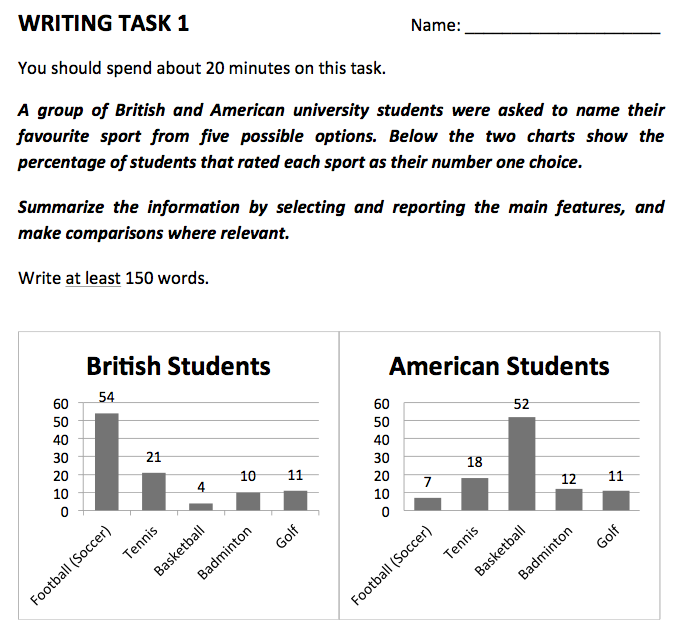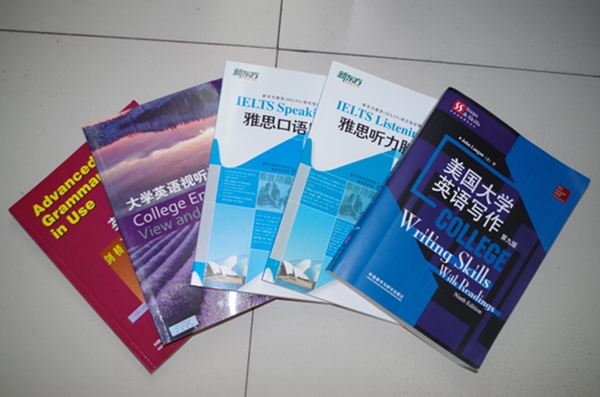Well it’s back at ‘er this week. Oddly, I’m glad to be back in the classroom with a host of new students, even though I had momentarily forgotten how to teach. The last week has been pretty busy both preparing for classes and helping the new teachers get on their feet and come to some sort of understanding of what goes on around here (not that I claim to know everything). I’ve been lucky in that I have PPTs from previous instructors so that has made our lives a lot easier.
So you might wonder what I actually do here in Beijing. In a nutshell, I teach the English language, but that can be broken down into two parts: English skills (reading, writing, listening, speaking) and test preparation.
IELTS and TOEFL Exams
A big part of my job is preparing students for their IELTS or TOEFL exams. For those of who unfamiliar with IELTS and TOEFL, they are exams that people (not just students) need to take if they want to go abroad to study or work. It’s scored out of 9.0 (TOEFL is scored out of 120) and most of my students are sitting at around 5.0 or 5.5. The courses I conduct try to help them get a 6.0 or higher so that they can attend a university outside of China. What’s the difference between IELTS and TOEFL? IELTS is used by British universities while TOEFL is used for North American universities.
Here is an example of a Task 1 Writing Question:

And here is Task 2:
Due to the development and rapid expansion of supermarkets in some countries, many small, local businesses are unable to compete. Some people think that the closeure of local business will bring about the death of local communities. To what extent do you agree or disagree?
The students then have 40 minutes to write a 250-word essay in response to the question.
Writing
Next, I teach writing both in preparation for the IELTS and TOEFL exams and for university, i.e., a traditional five-paragraph essay. I have a lot of fun with my writing students mostly because it’s a subject that many of them find easier than their other subjects (such as Physics or Environmental Sciences). That’s not to say that my class is the greatest (even though I tell my students that), but it is to say that it’s a bit more “free” in terms of subjects covered instead of a dense textbook written in complex academic English. It’s basically my job to help my students develop their English language ability for both inside and outside of university.

Speaking and Listening Skills
In addition to writing, I also conduct a course called Academic Communication, which is basically a speaking and listening skills course. That course has a textbook with a variety of topics and aims to prepare the students for both their IELTS speaking and listening exams and to give them a chance to actually speak English (because they won’t do it unless forced to). It’s like a “conversation class” but with an academic focus. This class can give me trouble sometimes because many of the students struggle with speaking English which discourages them and finally leads to them either clamming up or simply not coming to class. I understand that listening to a second language you don’t know very well and trying to improvise answers can be daunting, if not downright tiring, especially after two hours of it. It is fun, however, because I can often branch out into other, unrelated topics that are of more interest to the students, such as dating, shopping (for the girls) or sports / bodybuilding or games (for the guys).
Workload
This semester I “only” teach 24 hours per week, but that doesn’t include office hours (4 total), prep (lots) and grading (lots and lots more hours). In the end, it comes out to about 45-50 hours of work a week. To put the time it takes to do the work in better perspective, it takes me about 6 minutes to go through a 750-word essay and this term I will get 98 of them at the end of every month. I don’t have a TA to go through them for me so I get to read them all by myself. You do the math. Finally, at the end of each essay I leave a few remarks on how the student can improve their writing… which most often gets ignored by the student. 🙁
And so that’s basically what I do in a nutshell here in Beijing. I’ve had a few people ask me what China is like (especially in regard to teaching) so maybe I should make a post about that in the near future.